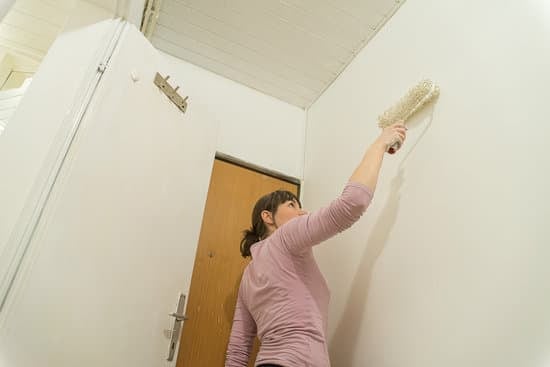What is a home improvement contractor’s license? A home improvement contractor’s license is a certification that allows an individual or company to legally conduct remodeling, repair, and renovation work on residential properties. This license serves as a guarantee that the contractor has met the necessary requirements and qualifications to perform quality work within the confines of the law.
Homeowners should understand the importance and benefits of hiring a licensed home improvement contractor, as well as the potential risks of working with an unlicensed one. Furthermore, anyone interested in obtaining this license must familiarize themselves with the process and requirements involved.
A home improvement contractors license holds significant importance when it comes to hiring someone to work on your property. It ensures that the individual or company has undergone appropriate training and possesses the necessary skills to handle various types of remodeling or repair projects.
Licensed contractors are also expected to adhere to industry regulations and building codes, which ultimately protects homeowners from subpar work and potential legal issues. In essence, having a licensed contractor onboard can provide peace of mind, knowing that the job will be completed professionally and according to standards.
The process of obtaining a home improvement contractors license involves several steps, which may vary depending on state regulations. Individuals seeking this certification are typically required to complete specific education and training programs related to construction or home improvement, pass an exam, submit an application, and pay associated fees. Additionally, there may be certain prerequisites regarding professional experience or background checks. Understanding these requirements is essential for those aspiring to become licensed contractors in their respective areas.
The Importance of Hiring a Licensed Home Improvement Contractor
One of the primary reasons for hiring a licensed home improvement contractor is their knowledge of building codes and regulations. These professionals are well-versed in local building codes, zoning laws, and permit requirements. As a result, they can navigate through the complexities of obtaining permits for construction or renovation projects with ease. This ensures that your project complies with legal requirements, avoiding potential fines or legal issues down the line.
Furthermore, licensed contractors are often required to carry liability insurance and workers’ compensation coverage. In the event of an accident or damage on the job site, their insurance will cover the costs, protecting you from any financial responsibility. Hiring a licensed professional gives you peace of mind knowing that you are protected from potential liabilities that could arise during the project.
Finally, licensed home improvement contractors are held to higher standards of professionalism and accountability. They are typically more reliable and can provide warranties for their work. This means that if any issues arise after the completion of your project, you have recourse to have them addressed without incurring additional costs.
| Benefits | Details |
|---|---|
| Knowledge of Building Codes | Ensure compliance with regulations |
| Insurance Coverage | Protection from financial responsibility |
| Professionalism & Accountability | Held to higher standards & provide warranties |
The Process of Obtaining a Home Improvement Contractors License
Obtaining a home improvement contractor’s license involves several steps and requirements. The process typically includes the following:
1. Meeting Eligibility Requirements: Before applying for a home improvement contractor’s license, individuals must meet certain eligibility requirements, which may include having a certain level of experience in the construction industry and completing a specific number of hours of training or education related to home improvement.
2. Completing an Application: Once eligibility requirements are met, individuals can then proceed to complete an application for a home improvement contractor’s license. This may involve submitting personal information, documentation of experience and/or education, and paying any required fees.
3. Passing an Exam: In many jurisdictions, applicants for a home improvement contractor’s license are required to pass an exam that tests their knowledge of building codes, safety regulations, and other relevant topics.
4. Obtaining Insurance and Bonding: In addition to passing an exam, individuals seeking a home improvement contractor’s license may need to obtain liability insurance and/or bonding as part of the licensing process.
5. Renewing the License: Once obtained, home improvement contractor licenses typically need to be renewed on a regular basis by fulfilling continuing education requirements and paying renewal fees.
Overall, the process of obtaining a home improvement contractor’s license is designed to ensure that licensed contractors have the necessary skills and knowledge to perform high-quality work while also protecting consumers from potential scams or subpar workmanship. By going through this process, licensed contractors demonstrate their commitment to professionalism and accountability in their construction projects.
Requirements for Obtaining a Home Improvement Contractors License
Obtaining a home improvement contractor’s license is a crucial step for those wanting to pursue a career in the construction or home renovation industry. The requirements for obtaining this license may vary depending on the state, but typically include the following:
1. Education and Experience: Most states require individuals to have a certain level of education and experience in the construction industry before applying for a home improvement contractor’s license. This could include completing an apprenticeship program or obtaining a degree in construction management.
2. Examination: In addition to meeting educational and experience requirements, individuals are usually required to pass a written examination demonstrating their knowledge of construction laws, safety regulations, and building codes.
3. Insurance and Bonding: Applicants are often required to provide proof of liability insurance and surety bonds as part of the licensing process. This ensures that they have the financial means to cover any damages or injuries that may occur on the job.
4. Application and Fees: Prospective licensees must submit an application along with all necessary documentation and pay any required fees as part of the licensing process.
5. Ongoing Education: Some states require licensed contractors to complete continuing education courses to stay up-to-date on changes in construction laws, regulations, and best practices.
Meeting these requirements not only demonstrates an individual’s commitment to professionalism and competence but also ensures that they have the skills and knowledge needed to provide high-quality work while adhering to safety standards and building codes. Having a licensed contractor also provides peace of mind for homeowners, knowing that they are working with someone who has met specific qualifications and maintains legal compliance within their industry.
Benefits of Having a Home Improvement Contractors License
As a licensed home improvement contractor, there are numerous benefits that come with having this official recognition. One of the primary advantages is the credibility and trust it builds with potential clients. Homeowners are more likely to hire a contractor who is licensed as it indicates a level of professionalism, skill, and expertise in their field. In fact, many homeowners may specifically request to see a contractor’s license before considering them for a project.
Another benefit of having a home improvement contractor’s license is the ability to legally perform certain types of work. In many states, specific home improvement projects such as electrical, plumbing, or HVAC work require a license to perform. This means that without the proper credentials, contractors would not be able to take on these types of projects legally.
Additionally, obtaining a home improvement contractor’s license often opens the door to more job opportunities and higher earnings potential. Many larger or government-funded projects may require contractors to be licensed in order to bid for the work. This can lead to more lucrative contracts and greater financial success.
| Benefits | Description |
|---|---|
| Credibility | Homeowners are more likely to hire a licensed contractor |
| Legal Ability | Enables contractors to legally perform certain types of work |
| Job Opportunities | Licensed contractors have access to more job opportunities and potentially higher earnings |
Risks of Hiring an Unlicensed Home Improvement Contractor
Quality of Work
One of the main risks of hiring an unlicensed home improvement contractor is the potential lack of quality in their work. Without a license, there is no guarantee that the contractor has the necessary skills, knowledge, and experience to perform the job to a high standard. This can result in poor workmanship, subpar materials, and ultimately, a finished project that does not meet your expectations.
Legal and Financial Liabilities
By hiring an unlicensed home improvement contractor, you also open yourself up to legal and financial liabilities. Since unlicensed contractors are not regulated by the state licensing board, you may have little recourse if something goes wrong with the project. In addition, if the contractor or their workers are injured while working on your property and they do not have proper insurance or bonding, you could be held liable for any damages or medical expenses.
No Recourse for Disputes
If you encounter any issues with an unlicensed home improvement contractor, such as unfinished work, disputes over payment, or disagreements about the quality of work, it can be difficult to resolve these issues without a formal contract or protection from state licensing boards. Unlicensed contractors are not held to the same standards as licensed contractors and may be more prone to abandoning a project or refusing to address concerns.
Without legal recourse or leverage through licensing boards, resolving disputes with unlicensed contractors can be challenging.
How to Verify a Home Improvement Contractors License
When hiring a home improvement contractor, it is essential to verify their license to ensure that they are qualified to perform the work. Verifying a home improvement contractor’s license can provide peace of mind and protection for homeowners. There are several ways to verify a contractor’s license, including checking with the state licensing board, searching online databases, or asking the contractor directly for their license number.
One of the most reliable ways to verify a home improvement contractor’s license is by contacting the state licensing board. This board oversees the licensing of contractors in a particular state and can confirm whether a contractor is properly licensed and in good standing. Homeowners can typically search for a contractor’s license status on the board’s website using their license number or company name.
In addition to checking with the state licensing board, homeowners can also utilize online databases to verify a home improvement contractor’s license. Many states have an online database where individuals can search for licensed contractors and view their current status. These databases often provide information about any disciplinary actions taken against the contractor, making it easy for homeowners to make an informed decision when hiring a contractor.
Conclusion
In conclusion, obtaining a home improvement contractors license is essential for both contractors and homeowners. The process of obtaining a license ensures that contractors have the necessary skills, experience, and knowledge to perform quality work on homes. It also provides homeowners with a level of assurance that they are hiring a reputable and qualified professional to improve their homes.
Having a home improvement contractors license not only benefits the contractor but also the homeowner. Licensed contractors can offer warranties and guarantees on their work, providing homeowners with peace of mind knowing that any issues will be addressed. Additionally, it protects homeowners from liabilities related to injuries or property damage that may occur during the home improvement project.
It is crucial for homeowners to verify a contractor’s license before hiring them to ensure they are legitimate and qualified. By doing so, they can protect themselves from potential risks associated with hiring an unlicensed contractor. Ultimately, having a licensed home improvement contractor benefits both parties involved in the home improvement process and helps to maintain high standards within the industry.
Frequently Asked Questions
What Can I Do With a HIC License in Massachusetts?
With a Home Improvement Contractor (HIC) license in Massachusetts, individuals can legally perform any type of home improvement work on a residential property. This includes construction, repair, remodeling, demolition, and more. The license is required for any project that involves one to four residential units.
Who Needs a MHIC License in Maryland?
In Maryland, any home improvement contractor who performs work in the state with a value of $5,000 or more is required to have a Maryland Home Improvement Commission (MHIC) license. This applies to both individuals and businesses involved in the construction, repair, remodeling, or alteration of residential property.
Does Connecticut Require a General Contractor License?
Yes, Connecticut does require general contractors to be licensed. Any individual or business that engages in commercial construction work exceeding $200 in labor and materials is required to obtain a general contractor license from the Department of Consumer Protection’s Occupational and Professional Licensing Division.
The licensing process involves meeting certain educational and experience requirements before being eligible to apply for the license.

I’m thrilled to have you here as a part of the Remodeling Top community. This is where my journey as an architect and remodeling enthusiast intersects with your passion for transforming houses into dream homes.





